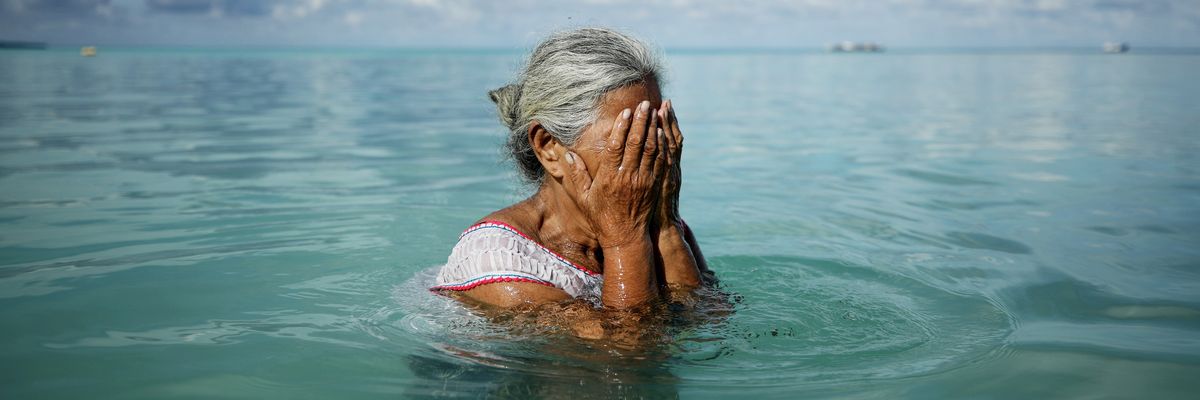With more than three weeks to go until the deadline for citizens of Tuvalu to apply for a limited number of visas as part of an agreement with Australia, nearly a third of people in the tiny Pacific island nation had registered by Thursday in hopes of emigrating from one of the world's most climate-vulnerable countries.
After a 2024 climate migration pact between the two nations, the Falepili Union, citizens of Tuvalu are eligible to apply for 280 Australian visas that will be given out each year.
Registration for the inaugural visas began last week, and within four days, 3,125 Tuvaluans had entered a lottery to win one. Tuvalu is home to about 10,643 people, according to 2022 census figures.
The Falepili Union was agreed to two years after leaders from Tuvalu proposed a fossil fuel nonproliferation treaty at the 27th United Nations Climate Change Conference in Sharm El-Sheikh, Egypt, making it the second Pacific island nation to demand an international agreement to stop the extraction of the planet-heating fossil fuels that have made Tuvalu one of the world's most vulnerable countries to the climate emergency.
Scientists say Tuvalu, which includes nine low-lying islands and atolls, could be uninhabitable by the end of the century due to rising sea levels.
The islands also see an average of one tropical cyclone in their vicinity per year, with storms often hitting in quick succession and exposing homes and other structures to high winds and extreme rainfall. The nation's gross domestic product fell by more than 25% in 2015 due to Cyclone Pam, which temporarily displaced 45% of the population, contaminated drinking water, and killed livestock. Due to the impact on agriculture across several Pacific Islands, roughly 166,000 people needed immediate food aid in the aftermath of the storm.
Two of the country's coral atolls have mostly been lost to sea-level rise, making the islands more vulnerable to storms.
By 2100, sea levels are projected to rise by more than two feet and Tuvalu is expected to face flooding for nearly a third of every year.
A spokesperson for Australia's Foreign Affairs Department told The Guardian that the Falepili Union is "the first agreement of its kind anywhere in the world, providing a pathway for mobility with dignity as climate impacts worsen."
Tuvaluans who obtain Australian visas under the pact will be eligible for Medicare, disability insurance, family tax benefits, childcare subsidies, and other benefits.
Earlier this month, Tuvalu was included in a draft list of countries where the Trump administration was considering imposing travel bans, in an internal cable sent by U.S. Secretary of State Marco Rubio. The administration said Tuvalu's inclusion was a mistake.
The pact with Australia commits the Australian government to defending Tuvalu from military aggression and health pandemics as well as "natural disasters."
"For the first time," Tuvaluan Prime Minister Feleti Teo said when the agreement was signed, "there is a country that has committed legally to recognize the future statehood and sovereignty of Tuvalu despite the detrimental impact of climate change-induced sea-level rise."




